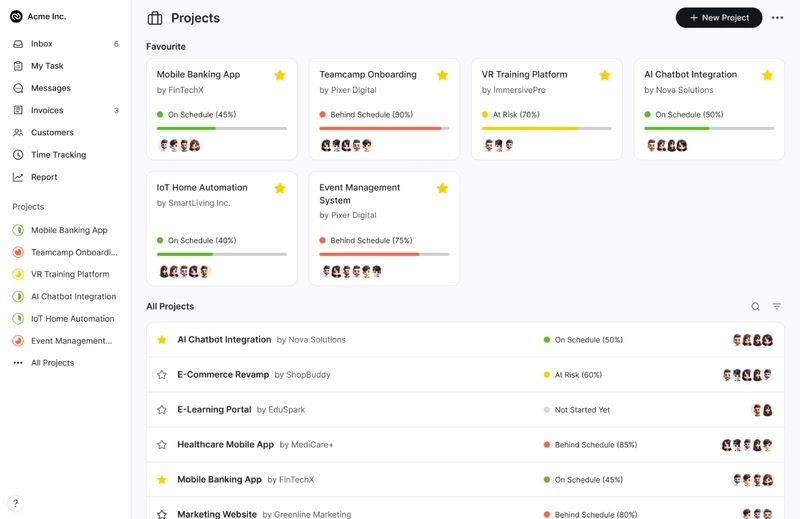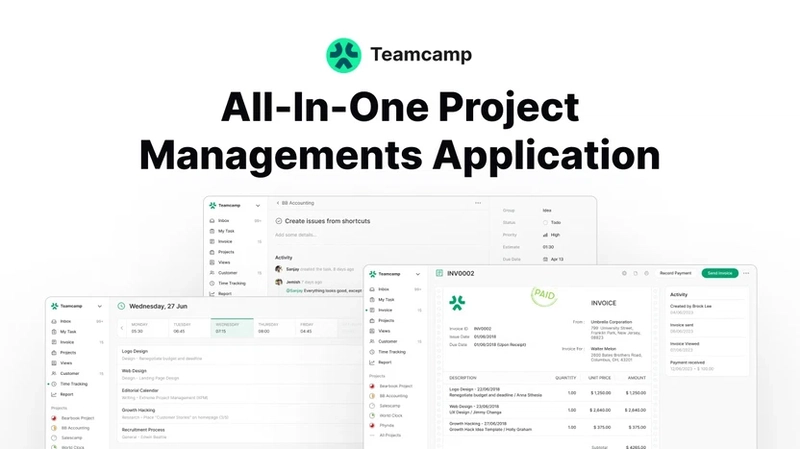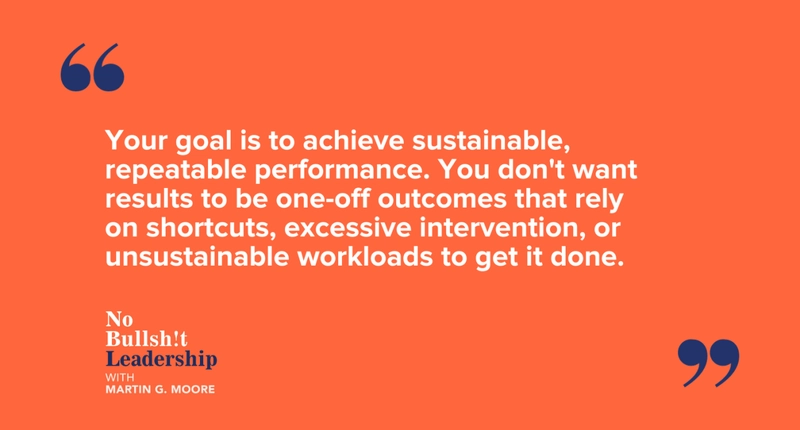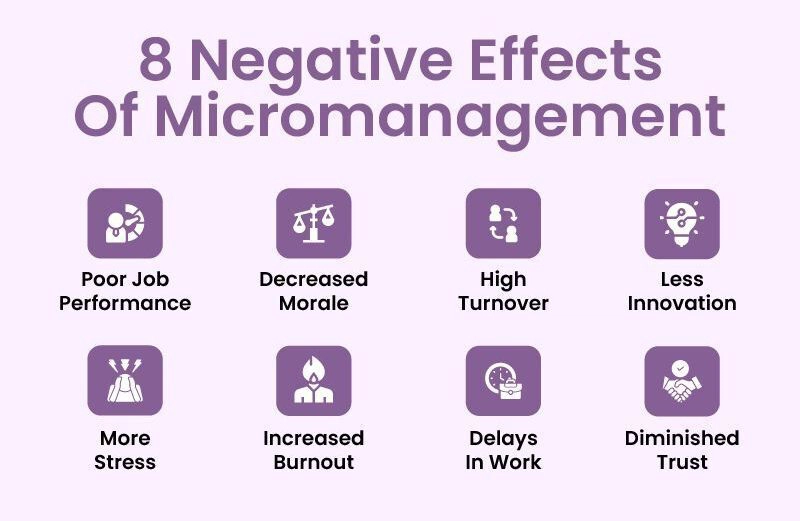Table of Contents
- Introduction
- Why Micromanagement Fails
- Key Principles for Tracking Productivity
- Strategies to Balance Autonomy and Productivity
- How Teamcamp Can Help
- Common Mistakes to Avoid
- Pro Tips for Boosting Productivity
- Conclusion
Introduction
Micromanaging is a common pitfall in software development teams. While managers often aim to ensure productivity and project success, excessive oversight can lead to disengagement, reduced creativity, and even burnout among developers.
This blog explores how managers can empower developers, maintain high productivity, and track progress effectively—without resorting to micromanagement.
By leveraging modern tools like Teamcamp and adopting best practices, you can create a thriving environment for your team.
Why Micromanagement Fails in Development Teams
Micromanagement often stems from a lack of trust or fear of missed deadlines. However, it is counterproductive for software development due to the following reasons:
Stifles Creativity: Developers need freedom to explore innovative solutions. Constant oversight limits their ability to think outside the box.
Reduces Ownership: Micromanaging discourages developers from taking responsibility for their work, turning them into task executors rather than proactive contributors.
Breeds Stress: Being closely monitored creates unnecessary pressure, leading to lower morale and higher turnover rates.
Wastes Time: Managers spend valuable time scrutinizing details instead of focusing on strategic planning.
The solution lies in fostering trust, autonomy, and accountability while using data-driven methods to monitor progress.
Key Principles for Tracking Developer Productivity
Before diving into strategies, it’s essential to establish guiding principles:
Focus on Outcomes, Not Output: Avoid vanity metrics like lines of code written or hours worked. Instead, measure the value delivered—features shipped, bugs resolved, or customer satisfaction.
Trust Your Team: Developers are professionals who thrive when trusted with autonomy.
Use Data Without Surveillance: Utilize tools and metrics that provide insights without invading privacy or creating a sense of being watched.
Encourage Collaboration: Productivity isn’t just an individual metric; team collaboration and knowledge sharing are equally important.
Strategies for Balancing Productivity and Autonomy
1. Set Clear Goals and Expectations
Developers perform best when they understand the bigger picture. Define project objectives, timelines, and deliverables upfront. This clarity ensures alignment with organizational goals while allowing developers flexibility in execution.
- Pro Tip: Use frameworks like OKRs (Objectives and Key Results) to align individual efforts with team goals.
2. Focus on Deliverables and Milestones
Instead of monitoring daily activities, track progress against deliverables and milestones. Breaking down larger projects into smaller tasks makes tracking easier while reducing the need for constant updates.
How to Implement:
Use project management tools like Jira or Trello to define milestones.
Conduct sprint reviews or milestone check-ins regularly.
Benefits:
Encourages ownership among developers.
Keeps the team focused on outcomes rather than processes.
3. Leverage Developer-Friendly Metrics
Choose metrics that resonate with developers and reflect meaningful progress:
Cycle Time: Measures how long it takes from task initiation to completion.
Lead Time for Changes: Tracks the time between code commit and deployment.
Bug Resolution Time: Evaluates how quickly issues are resolved.
Deployment Frequency: Measures how often updates are pushed to production.
Pro Tip: Share metrics transparently with the team to encourage collaboration rather than competition.
4. Automate Repetitive Tasks
Automation reduces cognitive load by freeing developers from mundane tasks like testing or deployment. This allows them to focus on critical challenges that require creativity and expertise.
Pro Tip: Tools like Jenkins or GitHub Actions can automate CI/CD pipelines effectively.
5. Foster a Feedback-Driven Culture
Encourage continuous feedback loops between managers and developers. Regular one-on-one meetings or retrospectives help identify bottlenecks and improve workflows collaboratively.
Benefits:
Promotes transparency and accountability.
Builds trust within the team by valuing developer input.
6. Use Modern Productivity Tools

Modern tools provide actionable insights into productivity without micromanaging:
LinearB: Tracks engineering workflows and highlights bottlenecks.
CodeClimate Velocity: Focuses on team-wide performance metrics.
Teamcamp: A comprehensive project management tool designed for developers (see detailed benefits below).
How Teamcamp Enhances Developer Productivity

Teamcamp is an all-in-one project management platform tailored for development teams. It strikes a balance between tracking productivity and maintaining developer autonomy:
Centralized Workspace: Consolidates tasks, documents, and discussions into one platform for seamless collaboration.
Agile Workflows: Kanban boards make it easy to monitor progress without micromanaging individuals.
Voluntary Time Tracking: Developers can log hours spent on tasks voluntarily, fostering trust rather than enforcing rigid tracking rules.
Real-Time Reporting: Provides insights into milestones, task completion rates, and bottlenecks—focusing on team performance rather than individual contributions.
Integration-Friendly: Works smoothly with tools like GitHub, Slack, Zapier, and Figma for uninterrupted workflows.
By adopting Teamcamp, organizations report a 40% reduction in unnecessary meetings and improved task clarity—leading to better collaboration without disrupting workflows.
Common Mistakes to Avoid
When balancing autonomy with productivity tracking:
Overloading Developers with Tools: Too many tools can confuse teams—stick to a few that meet your needs effectively.
Frequent Status Updates: Avoid constant check-ins; they waste time and create unnecessary pressure.
Comparing Individual Performance: Productivity varies based on task complexity—focus on team-wide metrics instead.
Pro Tips for Boosting Developer Productivity
- Implement focus hours where interruptions are minimized to allow deep work sessions.
- Match developer strengths with suitable projects by maintaining skill profiles within your team.
- Encourage work-life balance; stress reduces productivity significantly over time.
- Recognize achievements regularly—celebrate wins (big or small) to boost morale.
- Avoid multitasking; switching between tasks disrupts focus and slows down progress.
Conclusion: Building a Trust-Based Culture
Balancing autonomy with productivity requires thoughtful management practices that empower developers while ensuring accountability.
By setting clear goals, leveraging meaningful metrics, automating repetitive tasks, fostering feedback loops, and using tools like Teamcamp, managers can create an environment where developers thrive—and productivity naturally follows.
Empower your development team today with smarter strategies that respect their autonomy while driving results!







Top comments (6)
Great points on avoiding micromanagement! I appreciate the focus on fostering trust and using tools like Teamcamp to simplify workflows.
Loved this article! The tips on setting clear goals and leveraging feedback loops are spot on. Great way to centralize communication and boost efficiency
This blog really resonated with me—balancing autonomy and tracking progress is so important for dev teams. Thanks for sharing these insights!
Great blog! Loved the actionable strategies for empowering developers while maintaining productivity.
Neatly written. The section on 'Tracking Developer Productivity' was really good.
Fantastic read! The section on meaningful metrics was especially helpful. I’ll definitely explore Teamcamp for better collaboration in my team
Some comments may only be visible to logged-in visitors. Sign in to view all comments.